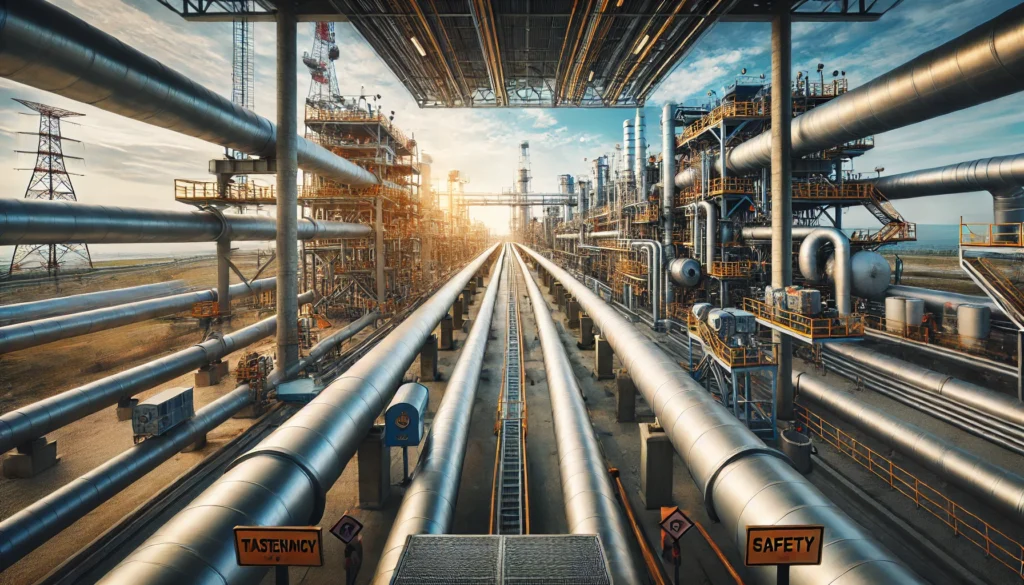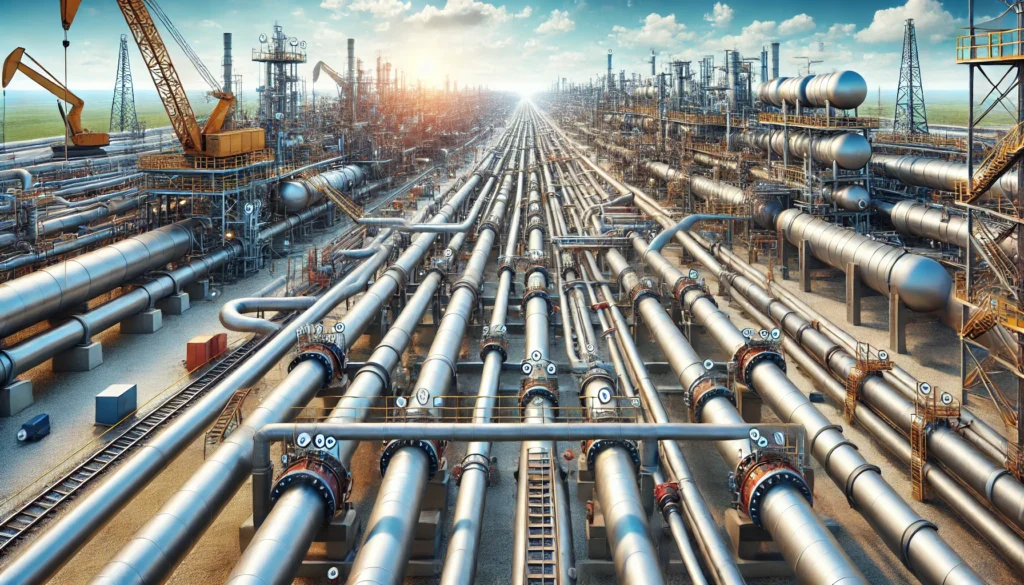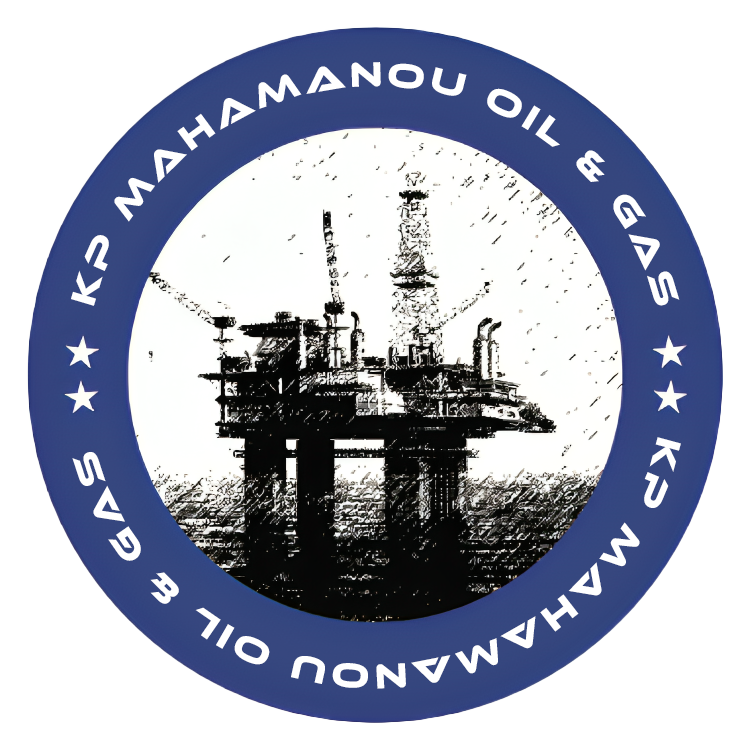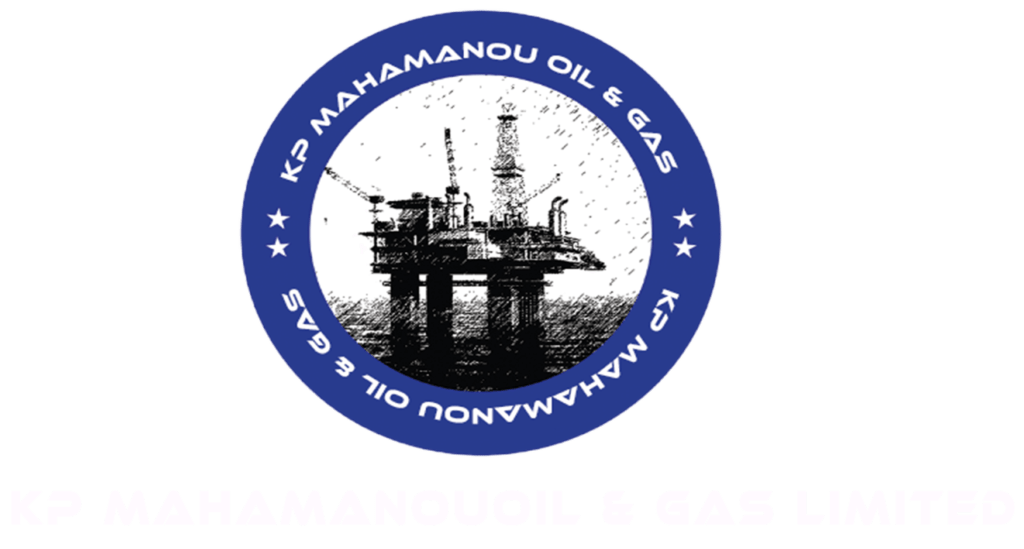PIPELINES
The market for oil and gas pipeline construction saw significant expansion in the years leading up to the 2008 economic downturn, driven by rising energy demand and the need for infrastructure to support global oil and gas production. However, the economic crisis in 2008 caused a temporary slowdown, with pipeline projects being delayed or canceled due to financial constraints and reduced energy demand
Despite this setback, the market rebounded in 2010 as energy production surged, particularly with the rise of unconventional resources like shale oil and gas in North America. This resurgence created a renewed demand for pipeline expansion, modernization, and the development of new routes to transport energy resources efficiently.
KP Mahamanou Oil & Gas Limited played a key role during this period, leveraging its expertise to support pipeline construction and modernization projects. The company focused on meeting the growing need for infrastructure to connect production areas with refineries, storage facilities, and end-users. By adopting innovative construction techniques and prioritizing safety and environmental sustainability, KP Mahamanou Oil & Gas Limited contributed to the industry’s recovery and growth.
The post-2010 period also highlighted the importance of updating aging pipeline networks to enhance safety, reduce environmental risks, and improve operational efficiency. KP Mahamanou Oil & Gas Limited invested in advanced technologies, such as smart monitoring systems and corrosion-resistant materials, to ensure the longevity and reliability of pipeline infrastructure. This proactive approach not only supported the industry’s expansion but also reinforced the company’s commitment to sustainable energy development.
As global energy demand continues to evolve, KP Mahamanou Oil & Gas Limited remains at the forefront of pipeline construction and modernization, ensuring that infrastructure keeps pace with the dynamic needs of the energy sector.


Oil and gas pipelines are critical components of the global energy infrastructure, designed to transport hydrocarbons safely and efficiently over long distances. Oil pipelines are typically constructed from steel or plastic tubes, with inner diameters ranging from 4 to 48 inches (100 to 1,220 mm). Most pipelines are buried at depths of 3 to 6 feet (0.91 to 1.83 m) to protect them from external damage and environmental factors. To further safeguard the pipes from impact, abrasion, and corrosion, various protective methods are employed, such as wood lagging (wood slats), concrete coating, rockshield, high-density polyethylene, imported sand padding, and padding machines. In colder climates, where crude oil’s paraffin wax content can lead to wax buildup within pipelines, regular maintenance is essential to ensure uninterrupted flow.
Pipeline Maintenance: Pigging
Pipeline maintenance often involves pigging , a process that uses devices known as “pigs” to inspect, clean, and maintain pipelines. These devices, also called “scrapers” or “Go-devils,” are launched from pig-launcher stations and travel through the pipeline to perform various functions. Smart pigs (or “intelligent pigs”) are advanced versions equipped with sensors and diagnostic tools to detect anomalies such as dents, metal loss from corrosion, cracks, or other mechanical damage. These devices not only clean wax deposits and debris but also record the pipeline’s condition, providing valuable data for preventive maintenance and ensuring operational integrity. KP Mahamanou Oil & Gas Limited utilizes state-of-the-art pigging technologies to maintain the efficiency and safety of its pipeline networks.
Natural Gas Pipelines
Natural gas pipelines are primarily constructed from carbon steel and vary in diameter from 2 to 60 inches (51 to 1,524 mm), depending on their purpose and capacity. The gas is pressurized using compressor stations to ensure it flows efficiently through the pipeline. Natural gas is odorless in its pure form, so a mercaptan-based odorant is often added to detect leaks, as required by regulatory authorities. This safety measure helps protect both the public and the environment.
KP Mahamanou Oil & Gas Limited is committed to the safe and efficient construction, operation, and maintenance of oil and gas pipelines. By employing advanced materials, protective measures, and cutting-edge technologies like smart pigging, the company ensures the reliability and longevity of its pipeline infrastructure. This dedication to excellence supports the global energy supply chain while prioritizing safety, environmental sustainability, and operational efficiency.

